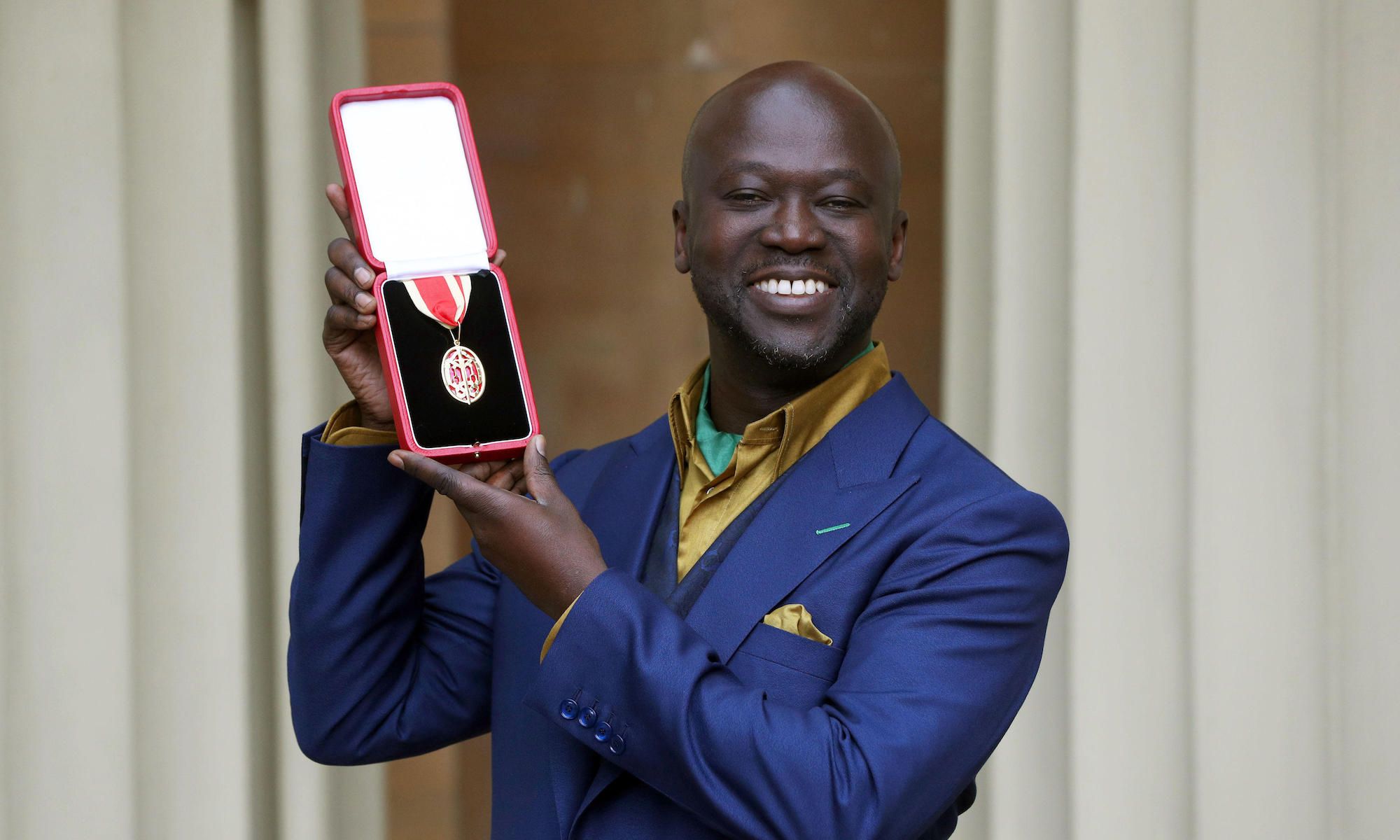David Adjaye after he was knighted by the Duke of Cambridge during an Investiture ceremony at Buckingham Palace in 2017
Photo: Jonathan Brady / PA Images / Alamy Stock Photo
In the wake of a Financial Times investigation into sexual misconduct allegations against the architect David Adjaye, several museums and other groups have ended partnerships with the internationally renowned figure.
The Studio Museum in Harlem, which had hired Adjaye's firm, Adjaye Associates, to design its new building (expected to be completed next year), has parted ways with him. The deCordova Sculpture Park and Museum in Lincoln, Massachusetts, has halted plans for an exhibition of Adjaye’s sculptural work. A real estate developer in Chicago will move forward with major redevelopment without the architect. A public library in Oregon has removed Adjaye from its construction project, and a research institute in Sharjah, United Arab Emirates, has cancelled the architect's project for a new campus.
Institutions began distancing themselves from the Ghanaian British architect within days of the publication of the Financial Times report, which details accusations from three unnamed women of sexual misconduct, exploitation and abuse of power. The women, who are all Black and single mothers, were formerly employed by Adjaye Associates. Adjaye has denied the accusations, saying in a statement released by a communications and crisis management firm: “These allegations are untrue, distressing for me and my family and run counter to everything I stand for.”
On Tuesday (4 July), the Multnomah County Library in Oregon announced that Adjaye was no longer associated with the construction of a new building, the Oregonian reported, and that the prime architect, Holst Architecture, will continue to lead the project. That same day, Adjaye resigned from his role as design advocate to the mayor of London, and the UK government confirmed that he had stepped back from working on London’s planned national Holocaust memorial.
“Although I continue to strongly reject the very serious allegations against me, it is important that they do not become a distraction for those organisations where I hold a personal role,” Adjaye told the Financial Times in a statement via spokesperson. “In order to focus on restoring trust and accountability, I have agreed to stand aside from those personal roles with immediate effect.”
On Friday (7 July), the paper reported that Adjaye had given the names of the three former employees and unredacted legal letters to the government of Ghana. The decision—which the architect says he accepts “was unwise”—was condemned by the whistleblowing organisation representing the women as a form of retaliation.
Adjaye has also left what was his first Chicago project, a major redevelopment in the city’s Old Town neighbourhood. A spokesperson for the developer, Fern Hill, told the Chicago Sun-Times on 5 July: “We have spoken with Adjaye Associates and are aware of these very serious allegations. At this time, Sir David will step away from the project, and we will continue to move forward in the best interest of our local stakeholders and partners in this transformational opportunity for the City of Chicago.”
On 6 July, the Studio Museum in Harlem announced that it would cut ties with Adjaye, The New York Times reported, with Raymond J. McGuire, chairman of its board, describing the alleged actions as “counter to the founding principles and values of the Studio Museum”. The museum has since removed all mention of Adjaye from its web page that details the construction project, scheduled to be completed in 2024.
On 10 July, Artnews reported that the Africa Institute—an academic institution in Sharjah devoted to the research and documentation of Africa, its people, cultures and diaspora—has cancelled Adjaye's project for a new campus. Hoor Al Qasimi, president of the Africa Institute, told Artnews in a statement that the organisation was “deeply troubled" by the allegations against the architect.
The Princeton University Art Museum, which had hired Adjaye Associates to design its new building, spoke out against the allegations as well. “We find the nature of the accusations enormously troubling,” James Steward, the museum’s director, told The New York Times. “It’s fair to say that most of our work with Adjaye is behind us. We have an obligation to all the people involved in this project to see it to completion.” The museum’s website continues to list Adjaye and his firm as designers of the project, in collaboration with executive architects Cooper Robertson.
Meanwhile, a planned exhibition of a large-scale earthen sculpture by Adjaye, 2021's Asaase , at the deCordova Sculpture Park and Museum has been placed “on indefinite hold”, Artnews reported. A work from the same series, Asaase III (2023), is due to be unveiled next week at the Griot Museum of Black History in St Louis, Missouri, commissioned as part of the city’s triennial, Counterpublic. Organisers are assessing ways to “come in dialogue with our community”, according to a statement released in response to the allegations. “We became aware of the allegations against David Adjaye through public reporting, and take these claims seriously.”
Adjaye is not the first prominent architect to face sexual harassment allegations. In 2018, The New York Times published accounts from five women who accused the architect Richard Meier of exposing himself to them and forcibly touching them, among other disturbing incidents. Meier retired from his firm in 2021.

